
- Board Of Directors
- Organisation Chart
- Achieving Quality Tourism
- Legislation
- Corporate Governance
- Invest in Tourism
- ASEAN Economic Community
- Media Releases
- Corporate Publications
- Newsletters
- Statistics & Market Insights Overview
- Tourism Statistics
- Industries Overview
- Arts & Entertainment
- Attractions
- Dining & Retail
- Integrated Resorts
- Meetings, Incentives, Conventions & Exhibitions
- Tourist Guides
- Travel Agents
- Assistance and Licensing Overview
- Tourism Sustainability Programme (TSP)
- Singapore Visitor Centre (SVC) Network Partnership
- Grants Overview
- Licensing Overview
- Tax Incentives Overview
- Other Assistance & Resources Overview
- SG Stories Content Fund Season 2
- Marketing Partnership Programme
- SingapoReimagine Marketing Programme
- Singapore On-screen Fund
- Hotel Licensing Regulations
- Data College
- Trade Events and Activities
- Trade Events Overview
- SingapoReimagine Global Conversations
- SingapoRediscovers Vouchers
- Made With Passion
- Joint Promotion Opportunities
- Procurement Opportunities for STB's Overseas Regional Offices
- Product And Industry Updates
- Rental of F1 Pit Building
- Singapore Tourism Accelerator
- Sponsorship Opportunities
- STB Marketing College
- Tourism Innovation Challenge
- Harnessing Technology to Emerge Stronger Post COVID-19
- Tourism Transformation Index (TXI)
- New Tourism Development in Jurong Lake District
- International Trade Events
- Singapore Familiarization Trips
- EVA-Ready Programme
- Tourism Industry Conference
- Expo 2025 Sponsorship and Partnership Opportunities
- Virtual Influencer Open Call for Collaboration
- Students & Fresh Graduates
- Professionals
- Attractions Operator
- Business/Leisure Event Organiser
- Media Professional
- Tourist Guide
- Travel Agent

Advisory on COVID-19 for Travellers and Tourism Businesses
13 February 2023
General Advisory for Travellers
1. Singapore is open to all travellers without quarantine. This includes non-fully vaccinated travellers. Covid-19 pre-departure tests are not required. More details are available here. 2. Depending on the destination you are travelling from, mask-wearing aboard flights and ferries to Singapore may be required. Travellers are advised to check with the respective transport operator on the mask-wearing requirement prior to their trip.
3. Singapore has stepped down all COVID-19 measures and mask wearing is not required except in healthcare settings. However, do practise good personal hygiene and wear a mask if you are unwell.
USEFUL LINKS

For MOH's latest measures, please click here.
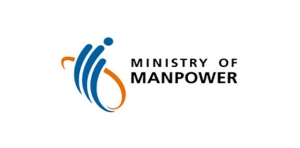
For MOM's latest advisories, please click here.
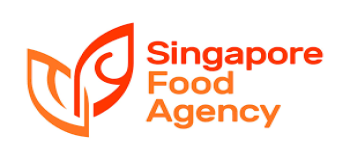
For SFA's requirement for food handlers

For ESG's latest SMMs, please click here .
About the Organisation
What industry does your organization fall within, what best describes the key intent of the project that your organisation is seeking funding for, is your organisation a singapore-registered legal entity, is your organisation an association, is the project able to achieve one or more of the following outcome.
- Increase no. of sailings to/from Singapore
- Increase no. of foreign cruise passengers to Singapore through sailings to/from Singapore
- Increase no. of pre/post nights for cruise passengers sailing to/from Singapore
- Increase capability of industry players via cruise-specific industry training programmes
- Strengthen the potential/ attractiveness of cruising in Singapore and/or Southeast Asia
Is the project able to achieve one or more of the following?
- Improve visitor satisfaction (especially foreign visitors)
- Increase footfall
- Increase revenue
- Significant branding and PR value
Is the project able to attract foreign visitors and contribute to foreign visitors' spend?
Who will be the main target audience of your project, is your project innovative and/or a new event in singapore with tourism potential, what best describes your project, does the event have proven track records in singapore or overseas, and/or growth in tourism value such as growing foreign visitorship, and/or enhancement of precinct vibrancy etc, does the project have a clear tourism focus (e.g. tourism-related trainings, tourism companies taking on capability development initiatives or technology companies creating technology products and services for the tourism businesses), what best describes your market feasibility study project.
Based on your selection, the following STB grant/s may be applicable for your project:
Please note that projects that have commenced prior to Singapore Tourism Board's offer may not be eligible for grant support. Examples where projects are deemed as having commenced include:
- Applicant has started work on the project e.g. tender has been called.
- Applicant has made payment(s) to any supplier, vendor or third party.
- Applicant has signed a contractual agreement with any supplier, vendor or third party.

- From 7 Oct 2021, border measures for incoming travellers will be determined based on the travellers’ recent travel history in the last 14 days, instead of 21 days.
- The Stay-Home Notice (SHN) for those who are currently serving 14 days will be reduced to 10 days, due to the shorter incubation period of the Delta variant.
- Adjustments have been made to the classification of countries/region and their corresponding border measures.
Reviewing the length of the Stay-Home Notice duration from 14 to 10 days
Since June 2021, the Multi-Ministry Taskforce on COVID-19 had required travellers with recent travel history to Category III and IV countries/regions to serve a 14-day SHN to account for the maximum COVID-19 incubation period.
As the Delta variant has a shorter incubation period, the Taskforce will reduce the SHN period for travellers from 14 to 10 days.
1) From 7 October 2021, all travellers with travel history to Category III and IV countries/regions in the last 14 days immediately prior to arrival in Singapore (including being in Singapore prior to travel), will serve 10 days of SHN at dedicated SHN facilities
• To undergo a COVID-19 PCR test on-arrival and on Day 10, and self-administered ART tests on Days 3 and 7
• SHN will be ended as long as they have a negative result for their PCR test on Day 10
2) Travellers who stayed in Category III countries/regions in the 14 days immediately prior to arrival in Singapore (including being in Singapore prior to travel) and are fully vaccinated:
• May apply to serve their SHN at their place of residence (e.g. residential address) or at other suitable accommodation (e.g. hotels or serviced apartments), if they are occupying these accommodation:
o alone; or
o only with household members who are also vaccinated persons serving SHN with the same travel history and duration of SHN
• Unvaccinated travellers will still be required to undergo a 10-day SHN at dedicated facilities
3) Refund details will be worked out for travellers affected by these changes, and will be shared with them separately
Conditions for opting out of serving SHN in dedicated SHN facilities
Travellers who wish to opt out of serving SHN in dedicated facilities must receive approval and present the approval documents upon arrival in Singapore:
All travellers who successfully opt out must remain in their declared place of residence/accommodation at all times and must don an electronic monitoring device throughout their SHN period.
- Action will be taken against those who breach their SHN requirements or make false declarations
- Travellers must take private transport to their declared place of residence/accommodation, and are strictly prohibited from taking public transport, e.g. public bus/train or street-hailed taxis
Review of countries/regions categories
Based on the COVID-19 situation in various countries, here is the latest classification for each of the 4 categories, can be found on the SafeTravel website . These changes will be effective from 7 October 2021.
Travellers are advised to visit the website to check the latest border measures for their associated country or region; and be prepared to be subjected to the prevailing border measures upon entry.
For more information, please refer to MOH’s press release .
^Countries/Regions may have vaccination-differentiated border measures. Please check the SafeTravel website for details.
@ The charges for 7-day SHN at dedicated SHN facility is $1,000.
@@ The charges for 10-day SHN at dedicated SHN facility is $1,450.
* 14-day travel history includes countries/regions whereby the traveller transits en route to Singapore, and also the time spent in Singapore by the traveller before embarking on the overseas travel (if any).
** All long-term pass holders and short-term visitors with travel or transit history to Bangladesh, India, Myanmar, Nepal, Pakistan and Sri Lanka are still not allowed to enter Singapore, as per MOH’s press releases on 22 and 30 Apr 2021.
# Every traveller aged 3 and above (in the calendar year) who is serving SHN will have to pay $20 (inclusive of GST) for 2 ART kits. ART swabbing is required for travellers serving SHN at dedicated SHN facilities.
LTPHs with passes issued by the Ministry of Manpower (MOM) may have to comply with additional requirements and measures.
Travellers who are not Singapore Citizens, Permanent Residents or Long-Term Pass Holders, may enter Singapore for short-term visits only if they are arriving from Category I countries/regions (with travel histories in the past 14-days in these countries/regions and/or Singapore), unless if arrangements have been separately announced (e.g. Vaccinated Travel Lanes or Reciprocal Green Lanes).

We use cookies to tailor your browsing experience. By continuing to use Gov.sg, you accept our use of cookies. To decline cookies at any time, you may adjust your browser settings. Find out more about your cookie preferences here .

- Rate This Website
- Report Vulnerability
- Privacy Statement
- Terms of Use
- Entering, Transiting and Departing
Entering Singapore
To ensure a smooth journey, travellers seeking to enter Singapore should comply with the Entry and Public Health requirements listed below.
1) General Entry Requirements
To enter Singapore, travellers must meet the following immigration requirements:
i) Passport Validity
- Have minimum 6-month passport validity if you are not a Singapore passport holder
- Short term travellers holding a passport or travel document from a visa-required country/region must apply for a Visa
- Visa-required travellers can use the Visa-Free Transit Facility for stay of less than 96 hours in Singapore, if eligible
iii) Security and Immigration Processes on Arrival
- Ensure that you do not bring prohibited items into Singapore
- Familiarise yourself with the Checkpoint's Entry clearance procedures , including whether you are eligible for automated clearance
- Short-Term travellers should have sufficient cash and proof of onward travel (tickets, visas), and ensure that you do not stay beyond your visit pass validity. You may retrieve your e-Pass after arrival using the e-Pass Enquiry Portal or check your visit pass validity using the visit pass validity tool .
iv) Customs Declaration
- Make a Customs declaration and tax payment using the Customs@SG web application before arrival if you are entering Singapore with goods exceeding your Goods and Service Tax (GST) import relief and/or Duty-free concession . For more information, please refer to Baggage Clearance/Dual-Channel System .
- Those transiting/transferring through Singapore without seeking immigration clearance; and
- Singapore citizens, Permanent Residents and Long-Term Pass Holders entering via land checkpoints.
Submission of SGAC is Free and can be done via the SGAC e-Service or MyICA Mobile app . Please refer to SGAC with Electronic Health Declaration for more information.
Short Term Visitors
- Visitors who wish to stay beyond the period of stay granted can apply for a visit pass extension online using the e-Service . Applications are subject to approval.
- Travellers on short-term visit pass are also not permitted to engage in any business, professional or paid employment activities when in Singapore. Overstaying is also a punishable offence in Singapore.
2) Public Health Requirements
To avoid tests and quarantine, travellers must fulfil the public health requirements below. Travellers who cannot meet the public health requirements and refuse any test(s) and/or quarantine may be turned away from Singapore.
Produce an International Certificate of Vaccination for Yellow Fever , if you have visited any country at risk of Yellow Fever transmission in the six (6) days prior to arrival in Singapore.
Travellers must serve quarantine for six (6) days from date of departure from countries with risk of yellow fever transmission if they cannot meet the requirement. Quarantine also applies to those who are ineligible to receive the vaccination e.g., children aged one year and below and individuals with contraindications, and travellers whose yellow fever vaccination certificate has yet to become valid.
There are no longer any COVID-19 measures for travellers arriving in Singapore from 13 Feb 2023 , regardless of vaccination status or traveller profile.
Related Links
- Entry for Sea Crew/Pleasure Craft Owners
- Cargo and Postal Article Requirements
- Woodlands and Tuas Checkpoints Traffic Updates
- Requirements for Transiting in Singapore
- Taking Cash In and Out of Singapore
- Use of QR Code for Immigration Clearance at Woodlands and Tuas Checkpoints
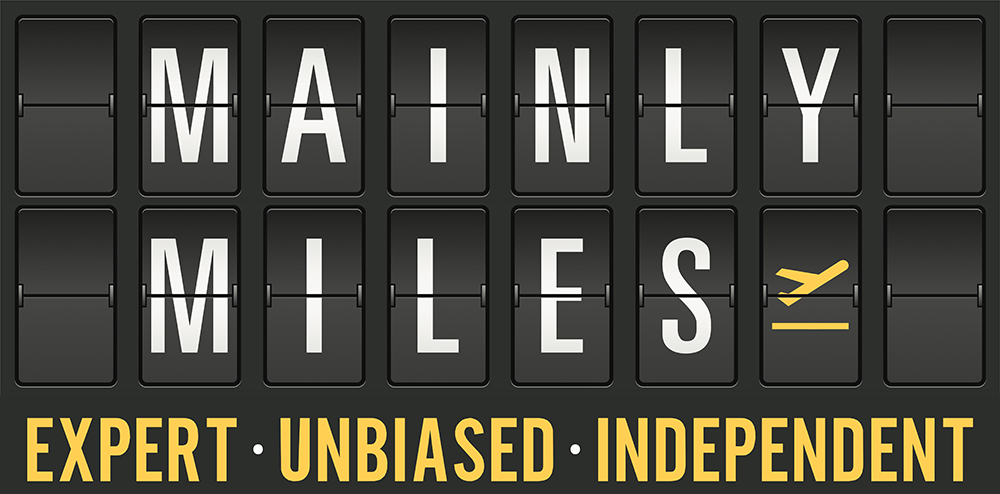
Mainly Miles
Maximise your miles.
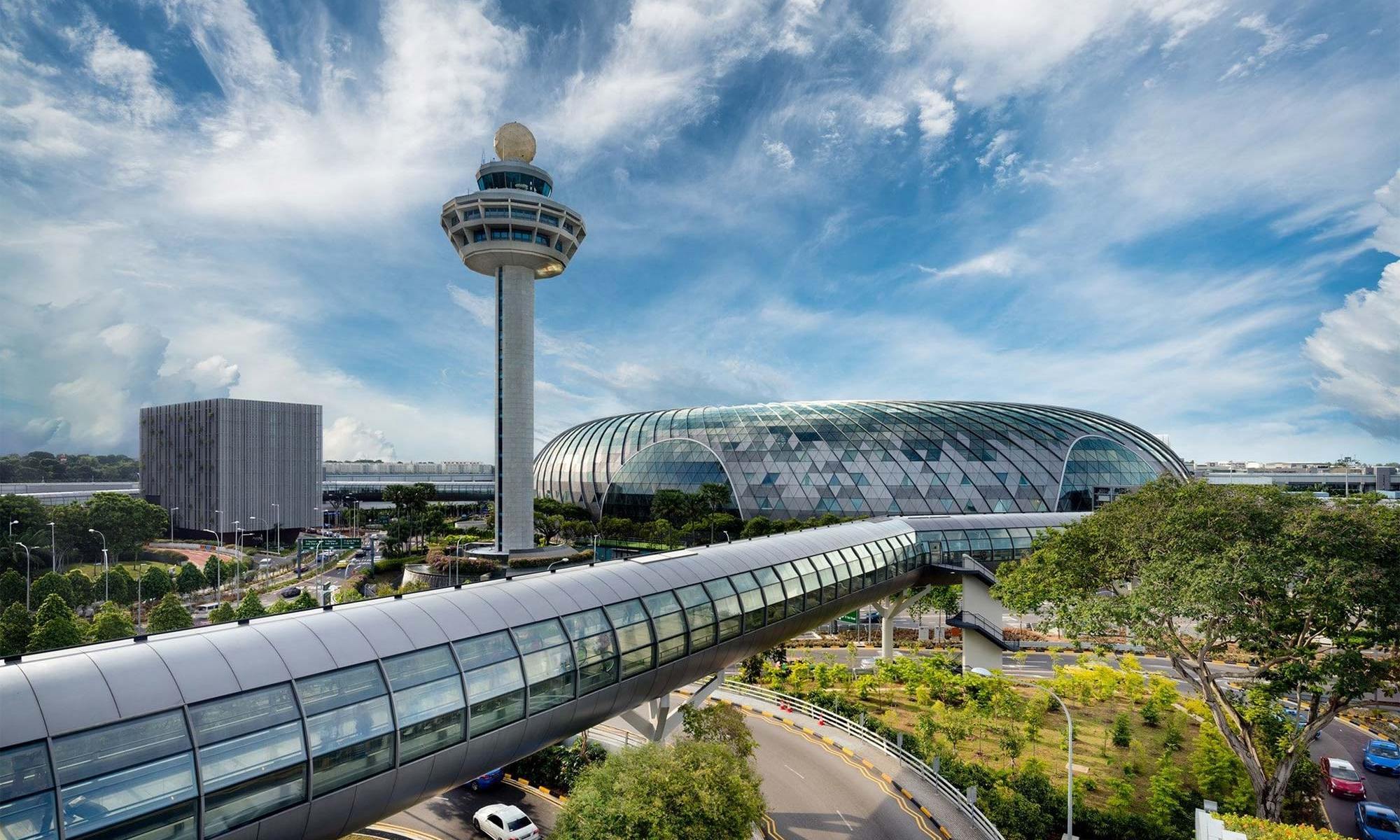
Complete guide to Singapore’s Vaccinated Travel Framework (VTF)
Singapore has made the biggest step to ease border restrictions since the start of the COVID-19 pandemic, with an end to its Vaccinated Travel Lane (VTL) programme on 1st April 2022, in favour of a new Vaccinated Travel Framework (VTF) scheme, under which fully vaccinated travellers arriving from any country are now eligible to enter quarantine-free.
All fully vaccinated travellers and children aged 12 and under entering Singapore from 1st April 2022 are now able to travel quarantine-free via any flight from any part of the world under the scheme, as the country re-calibrates travel requirements based predominantly on a traveller’s’ COVID-19 vaccination status, rather than their travel history.
Singapore Vaccinated Travel Framework Key Points

- Fully vaccinated travellers can travel to Singapore from any country without serving quarantine or an SHN period
- No more VTL flights – arrive on any flight , operated by any airline
- No more Vaccinated Travel Pass for short-term visitors
- No more pre-departure test [from 26 April 2022]
- No more on-arrival test in Singapore
VTF Process (ICA)
Here’s what you need to know about how the travel process has changed for air travellers, now that the VTL is a thing of the the past and the (far simpler) VTF is in force.
What’s changed?
Before we get into the details, here’s a summary of the eligibility and process changes for quarantine-free arrivals, reflecting Singapore’s transition from the VTL to the VTF.
🇸🇬 Singapore VTL vs. VTF
Eligibility.
To be eligible to travel to Singapore quarantine-free under the VTF, air passengers must be:
- Fully vaccinated against COVID-19; or
- Aged 12 and below (i.e. born in or after 2010, for arrivals in 2022) and not fully vaccinated
Fully vaccinated definition
In order to be considered fully vaccinated for entry into Singapore under the VTF, you must meet one the following conditions at least two weeks before arrival:
- Received the full regimen of WHO EUL Vaccines (see below) and meet the minimum dose interval period; or
- If you contracted COVID-19 before being vaccinated, you must have received at least one dose of any WHO EUL Vaccine (see below) at least 28 days from your first diagnosis of a COVID-19 infection. You must produce acceptable proof of your first positive COVID-19 diagnosis in this case.
Approved Vaccines
A booster dose is not required to be considered fully vaccinated for the purposes of entering Singapore via the VTF.
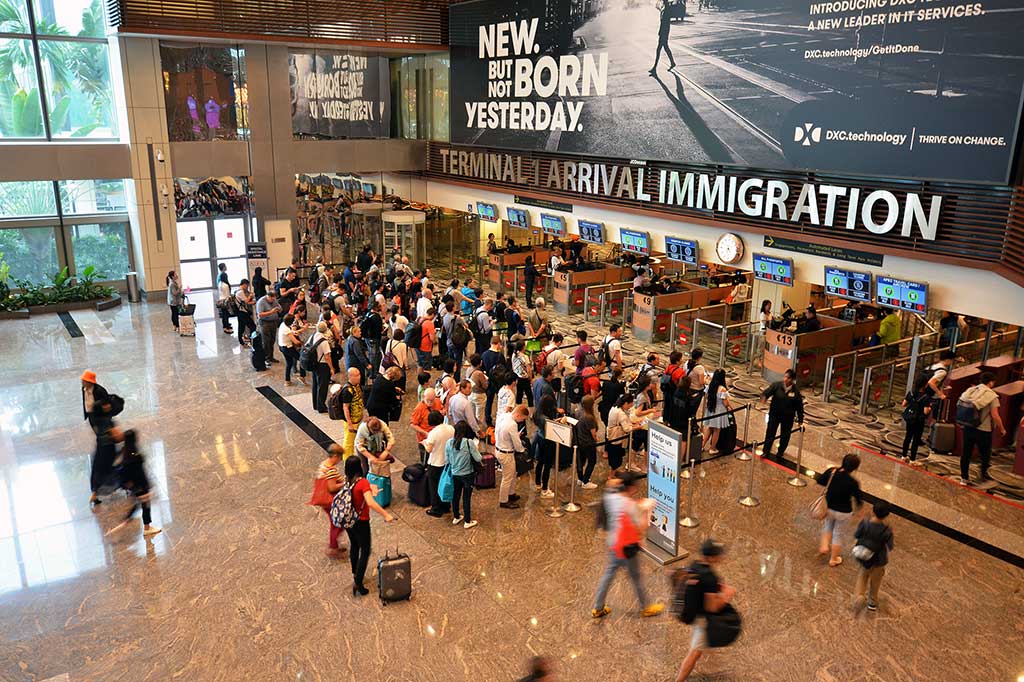
Proof of vaccination is preferably via digitally-verifiable means (QR code) for faster arrival processing, but unlike the VTL requirements, non-digital (paper-based) certificates are also accepted under the VTF.
See here for full details.
Visa requirements
If your passport is issued in one of these 36 countries, you will need a visa to travel to and enter Singapore.
- Afghanistan
- North Korea
- Saudi Arabia
- South Sudan
- Turkmenistan
Remember, the SG Arrival Card (SGAC), which must be completed by all passengers, is not a visa.
Further information on obtaining an entry visa is available at the ICA website .
Additional approvals
If you are a non-Malaysian Work Permit In-principle Approval holder employed in the Construction, Marine shipyard and Process Sector (CMP worker), you will need to apply for Entry Approval from the Ministry of Manpower at least 3 working days before your intended date of departure.
If you are travelling from a country in Africa or South America that is endemic for Yellow Fever, you are also required to produce a valid Yellow Fever vaccination certificate for entry into Singapore. Further details, including a list of affected countries, is available here .
Eligible countries
All countries and regions around the world are currently in Singapore’s General Travel category, meaning there are no travel history requirements for VTF travellers.
This is a welcome change from the VTL scheme, which had specific travel history requirements.
Designated flights
Under the VTL, travellers had to enter Singapore on designated VTL flights approved by the Civil Aviation Authority of Singapore.
This was arguably one of the most complex elements of the scheme, leading to our full list of these services recording over 427,000 views in the five months since we launched the page.
While we are happy this resource was so valuable to so many readers from all around the world, we’re also very happy to confirm that the designated VTL flight concept has been completely done away with in the new VTF scheme.
Travellers can now arrive in Singapore on any flight, with any routing, from or via any country, on any airline and still enjoy the quarantine-free arrival process, under the VTF from 1st April 2022.
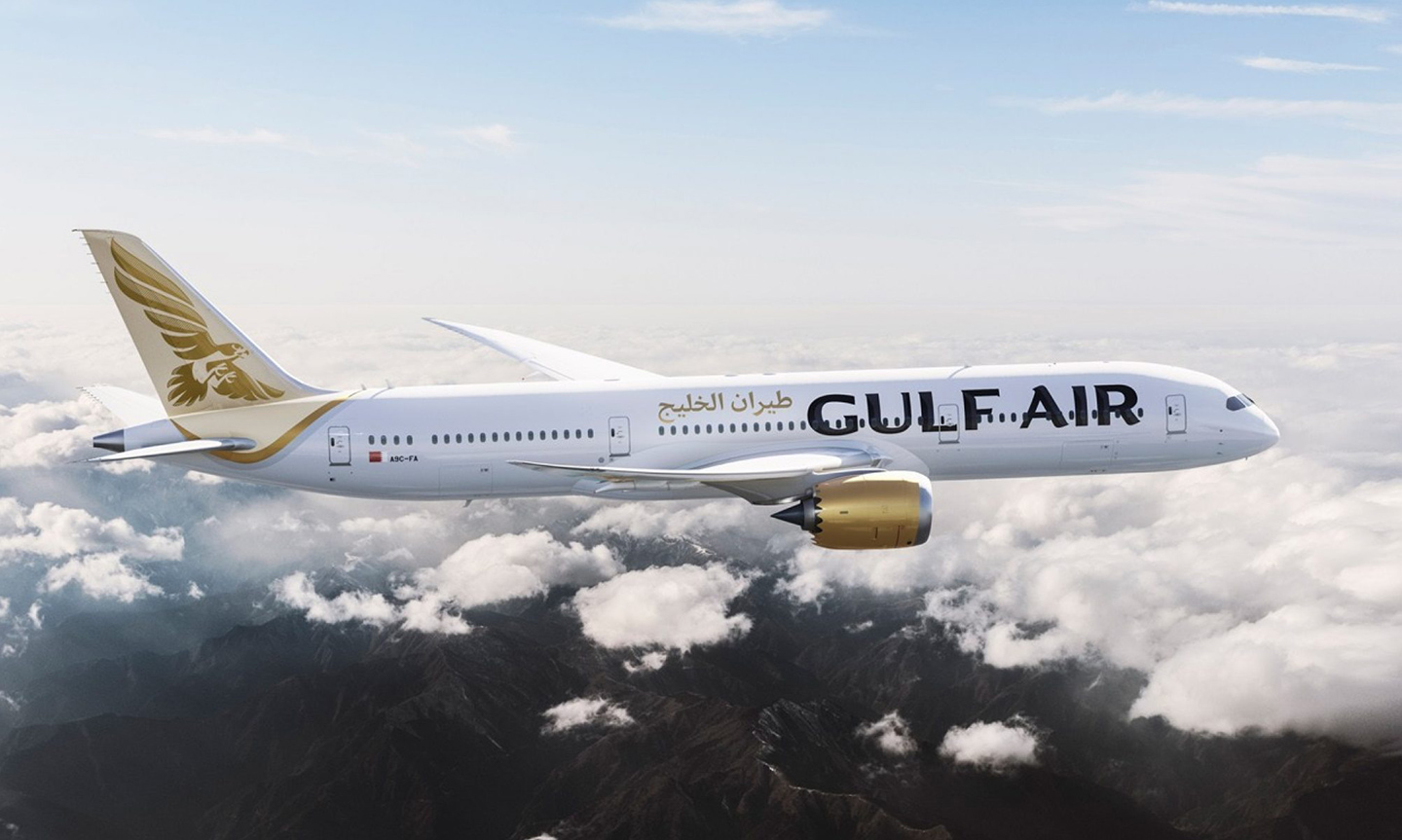
This opens up exciting new options including:
- Any flight on a Middle East carrier, adding Gulf Air services from Bahrain and all Qatar Airways, Emirates and Etihad flights, which had some quarantine-free VTL options but not every day of the week.
- Transits from the USA via Japan on JAL and ANA.
- Transits from Europe and the USA on all Turkish Airlines flights via Istanbul (only Sunday flights had the VTL tick)
- Quarantine-free flights from non-VTL countries already open to tourists, like Singapore Airlines services from Johannesburg and Cape Town.
Additionally, this will hopefully encourage more airlines to restore services to Changi, like Air Mauritius, Ethiopian Airlines and LOT Polish, increasing options and reducing costs for travellers on transit itineraries.
Incumbent Singapore-based carriers may also reopen some non-VTL routes after 1st April 2022, like Scoot to Lombok and Jetstar to Medan and Surabaya. Let’s hope for some announcements like that soon.
Fully vaccinated travellers arriving in Singapore under the VTF scheme from 1st April 2022 will still require a pre-departure COVID-19 test (until 26th April 2022 ) , but the self-swab ART on-arrival test within 24 hours of clearing immigration has thankfully been removed.
This also cancels any on-arrival self-isolation requirement, leaving you free to roam and enjoy your trip or simply get on with everyday life as a returning resident immediately, like in pre-COVID times.
The pre-departure test (PDT) requirement is:
- A negative clinic PCR test; or
- A professionally administered (clinic) ART test
Within two calendar days of departure (e.g. if your flight departs for Singapore at 11.55pm on Wednesday, you can take the test anytime on Monday, Tuesday or Wednesday).

Additionally, Singapore Citizens, Permanent Residents, Long-Term Pass Holders or Work Pass Holders physically present in an approved overseas country can also take:
- A video ART test supervised by an approved telemedicine provider in Singapore.
This service is now valid for those arriving from all countries , having originally been restricted to those physically present in selected locations.
We have a rundown of the cheapest video ART test providers offering this service, starting at S$12, here .
PDT removed from 26 April
The next major step for the VTF will be the removal of the pre-departure testing requirement, which will come into effect on 26th April 2022.
That will be a fantastic step for travellers, removing the worry about being stranded overseas due to a positive PDT result, not to mention the inconvenience of arranging a test prior to travel.
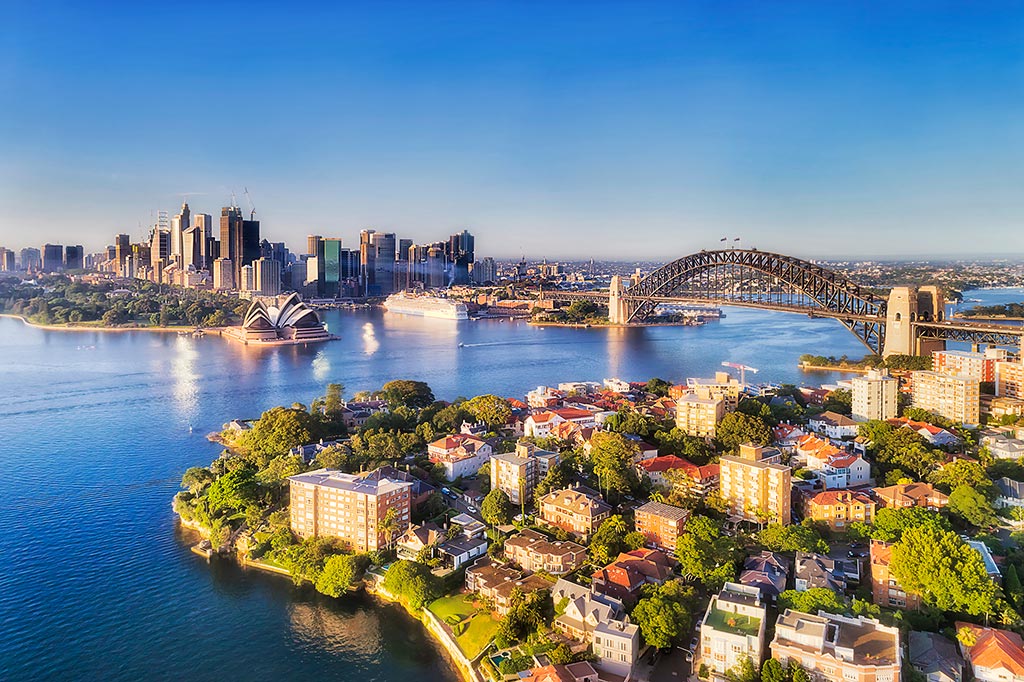
Many countries Singapore residents can travel to without quarantine already don’t impose pre-departure testing for fully vaccinated travellers, including all European countries , Cambodia , Canada and Australia .
This means two-way quarantine-free and test-free travel is on the horizon for Singapore residents to and from many countries from 26th April.
Vaccinated-Recovered travellers
If you tested positive for COVID-19 between 7 and 90 days before your date of departure for Singapore, you may qualify as a Vaccinated-Recovered Traveller, which removes the pre-departure test requirement under the VTF process.
The ICA has a handy tool which allows you to check whether you qualify. Requirements include providing a valid COVID-19 positive test certificate.
For those who contracted COVID-19 in Singapore, any positive test will be reflected in your HealthHub app, which can then be used within the 7-90 day window to enter Singapore without pre-departure testing.
If you qualify for Vaccinated-Recovered Traveller Protocol, you can refer to this ICA checklist for full details of the required process.
No more Vaccinated Travel Pass (VTP)
Currently, short-term visitors and work permit holders heading to Singapore on the VTL scheme must apply for a Vaccinated Travel Pass (VTP) between 3 and 60 days before their intended date of entry.
Approved VTPs were then valid for 14 days (date of entry plus 13 subsequent days), to accommodate any changes in travel plans.
Good news is that the VTP is being disbanded at the commencement of the VTF scheme on 1st April 2022, and will no longer be a requirement for any arriving passengers.
Upload of overseas vaccination certificates for visitors will be merged into the SG Arrival Card.
Arrival card (SGAC)
All travellers arriving in Singapore must complete the SG Arrival Card (SGAC) , which is a common requirement between the VTL and the new VTF process.
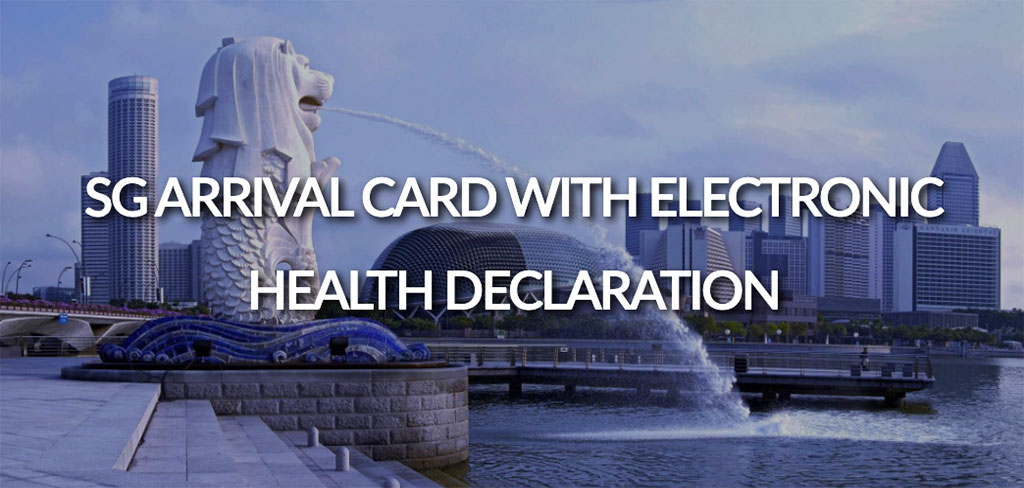
Once the VTF commences on 1st April 2022, the SGAC will be “streamlined”. Travellers will be able to complete it within 72 hours of arrival in Singapore, ideally doing so before departure. The modified SGAC will comprise:
- Personal particulars
- Vaccination status, including the submission of proof of vaccination for those who are vaccinated outside Singapore. Those vaccinated in Singapore do not need to upload their proof of vaccination
- Health declaration
At the latest, the SGAC must be completed on arrival, in order for immigration clearance to be processed.
Unvaccinated children
Children aged 12 or below in the current calendar year (e.g. those born in 2010 or later, for arrivals in 2022) are exempt from the requirement to be fully vaccinated, effectively the same policy applied to the VTL programme since October 2021 .

Under the VTF, however, unvaccinated unaccompanied minors are allowed to travel on flights to Singapore and benefit from quarantine-free arrival.
Unaccompanied minors under 12 are not allowed to travel on VTL flights if they are unvaccinated, so this opens another option for some families who need to travel separately from their children, without quarantine concerns.
Contact tracing app
All VTF travellers must install and activate the TraceTogether contact tracing app on their mobile device.

Travellers aged six or below in the arrival calendar year, or those who are unable to use a mobile device, can pick up a TraceTogether token after arrival in Singapore.
Arrival health checks
If you are symptomatic on arrival at Changi Airport, you may be directed to take a COVID-19 test, at your own expense.
Each ART administered will cost S$30, while each PCR test will cost S$138.
What about unvaccinated travellers?
If you are aged 13 or over and are not fully vaccinated against COVID-19, you will not qualify for quarantine-free entry under the Vaccinated Travel Framework (VTF) and will instead need to:
- Obtain an entry approval (except for Singapore Citizens and Permanent Residents)
- Obtain a negative COVID-19 pre-departure test, as outlined for VTF travellers above
- Serve a Stay Home Notice (SHN) for seven full days on arrival in Singapore (e.g. clear immigration on 1st May, SHN period is 1st-8th May inclusive)
- Take a mandatory PCR test before the end of your SHN period, which will be arranged by ICA, costing S$125
Travellers aged 13 and above who hold a long-term pass (e.g. Student’s Pass or Work Pass) must complete the full vaccination regimen within two months of arrival, unless they are medically ineligible.
Unvaccinated short-term visitors are generally not allowed to travel to Singapore, though there are exceptions on compassionate grounds.
Full details for unvaccinated travellers can be found here .
What about those arriving from restricted countries?
Singapore’s list of restricted countries is currently empty, with all countries and regions around the world in the ‘General Travel’ category.
The restricted category may be used in future, for example if a new COVID-19 variant of concern emerges in a specific location.
“In the event of a new variant with potentially significant public health risk, we may re-classify significantly affected countries/regions under the Restricted Category with stringent border measures, such as the need for entry approvals for short-term visitors to enter Singapore.” Singapore Ministry of Health
If the list is used in future, travellers with a seven-day travel history including one or more restricted countries will be subject to the following requirements:
- A pre-departure PCR test is mandatory (rather than the VTF traveller requirement comprising either a PCR or ART test)
- An on-arrival PCR test will be conducted
- Seven-day SHN at a dedicated facility will be enforced on arrival in Singapore, at a cost of S$1,015
- A mandatory PCR test before the end of the SHN period, which will be arranged by ICA, at a cost of S$125
Let’s hope this category remains empty and does not need to be used, however in the event that it does come into force one option for travellers will be to clear their seven-day travel history of restricted countries by travelling to a ‘General Travel’ country for at least a week, before flying to Singapore.
What about transit passengers?
Transit passengers who are changing to an onward flight at Changi without clearing arrival immigration or leaving the transit area must be fully vaccinated to travel on designated VTL flights to Singapore, with a valid vaccination certificate in English issued by any country.
With no more designated VTL flights from 1st April 2022, this requirement will cease and transit passengers will no longer be required to show fully vaccinated status to travel on any service to and from Singapore, with a transit at Changi.
“Effective 1st April 2022, transit passengers, regardless of vaccination status, need only meet their final destination requirements.” Singapore Airlines
Transit passengers passing through Changi are already exempt from any pre-departure test requirements, whether travelling on VTL flights or not, unless their final destination country imposes one.
Singapore’s shift to the Vaccinated Travel Framework from 1st April 2022 represents the country’s most significant relaxation of its borders since the start of the COVID-19 pandemic, coming only around a month after we confirmed the complex VTL scheme was set to be scrapped .
Both Singapore residents and visitors alike can now take advantage of this simple quarantine-free process, provided they are fully vaccinated against COVID-19, with no more pesky designated VTL flights to book, travel history requirements or on-arrival testing to contend with.
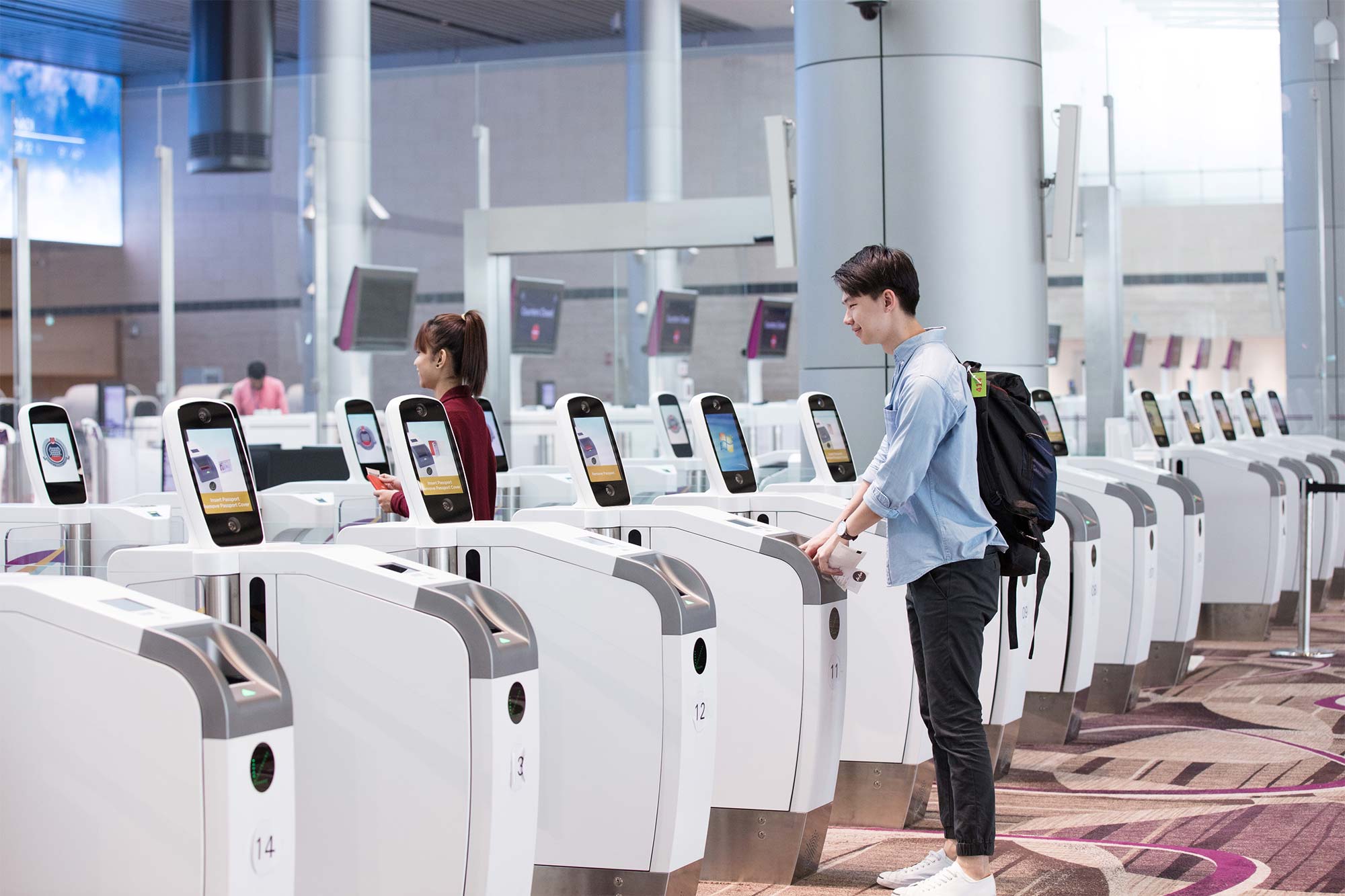
There is also a removal of the pre-departure test requirement from 26th April, which will simplify the process even further towards an almost completely pre-COVID travel experience, while also removing the worry for Singapore residents about becoming stranded overseas, due to a positive PDT result.
Let us know if you have any questions about the VTF process in the comments section below. Happy (quarantine-free) travelling!
(Cover Photo: Changi Airport)
Share this:
- Click to share on Facebook (Opens in new window)
- Click to share on Twitter (Opens in new window)
- Click to share on Telegram (Opens in new window)
If i bring my maid to travel with me, will she count as a long term pass holder and fall under the same category just like me who is a singapore citizen? Will she need to do anything special? She is from PH and we plan to go to Manila to visit her family.
Yes she can enter under the same process without approval, provided she is fully vaccinated. 👍🏼
It’s very strange that the telemedicine for pre-departure testing is available only for some countries. Notably, all the Southeast Asia countries (including Malaysia) and Switzerland are not on the list. Do you know why?
Leave a Reply Cancel reply
Discover more from mainly miles.
Subscribe now to keep reading and get access to the full archive.
Type your email…
Continue reading

- Countries & Regions
- International Organisations (IOs)
- Climate Change
- Counter Terrorism
- Disarmament
- Cybersecurity
- International Peacekeeping
- Singapore's Voluntary National Review
- Small States
- Sustainable Development
- Pedra Branca
- Singapore Universal Periodic Review
- Water Agreements
- Find A Singapore Overseas Mission
- Foreign Representatives To Singapore
COVID-19 Information
- Travel Tips
- Visa Information
- I Need Help Overseas
- Passport Matters
- Legalisation of Documents
- Travel Advisories and Notices
- Useful links
- Press Statements, Transcripts & Photos
- Announcements and Highlights
- Experience Singapore
- Foreign Service Officer (Functional and Corporate)
- Foreign Service Officer (Political and Economic)
- Foreign Service Administration Specialist
- Job Opportunities
- Pre-University
- Undergraduate
- Foreign Service Scholarships
- Recruitment
- Scholarship
- Reach.gov.sg
Ministry of Health (MOH) Public Health Advisory
Please refer to the MOH COVID-19 website for updates on the latest COVID-19 Measures.
Travel Advisories and Entry Restrictions Imposed by Foreign Countries
While planning your travel routes, you may wish to refer to the International Air Transport Association (IATA) Travel Centre website or the MFA Travel Information pages for more travel information related to the destinations.
Information for Incoming and Outgoing Travellers
All COVID-19 related border measures have been lifted from 13 February 2023.
Please visit the Immigration & Checkpoints Authority website for current requirements for entry to and departure from Singapore. Information on the SG Arrival Card with Electronic Health Declaration can be found here .
Other COVID-19 resources
Overseas Singaporeans can also visit the Singapore Global Network (SGN) website f or more COVID-19 related resources and links.
Refer to Singapore Tourism Board’s latest guide for Visitors.
Disclaimer The information on this page is presented by the Ministry of Foreign Affairs (MFA) for the purpose of providing information for the benefit and convenience of the public. Every effort has been made to provide accurate and complete information. However, the MFA cannot guarantee that there will be no errors. The MFA recommends that you exercise your own skill and care with respect to your use of this information, and that you carefully evaluate the accuracy, currency, completeness and relevance of the material on the page or on any linked site. The Government of the Republic of Singapore does not guarantee, and accepts no legal liability arising from or connected to, the accuracy, reliability, currency or completeness of any material contained on this page or any linked site. Please refer to our Terms of Use .
The Ministry of Foreign Affairs is a ministry of the Government of Singapore responsible for conducting and managing diplomatic relations between Singapore and other countries and regions.
Travel Page
Essential Information
Prepare for an unforgettable journey to Singapore – get important information, tips and advice to maximize your experience and make the most of your visit.
Travel Tips
Money and payments, commuting around the island.
11 things to know before visiting Singapore

Mar 9, 2024 • 6 min read

Plan for your trip to Singapore with these things you should know and insider tips © Jakub Zajic / Getty Images
Singapore has a well-cultivated image of being a safe country .
Too safe perhaps for some, who balk at its infamously strict rules and fines for flouting them, and find the gleaming modern city too sanitized for their liking. Others appreciate the clean streets and manicured gardens amidst the tall buildings along with the intriguing mix of people that make up Singapore’s multifaceted culture.
As a Singaporean who’s lived here all her life (and who has always had to explain the country to fellow travelers in foreign hostel common rooms) here’s what you need to know about Singapore, its cultural landscape, and its local customs and quirks, to help you plan your trip to the Little Red Dot.
1. Singapore is small, but with lots to see and do
Compact Singapore takes less than an hour to drive from end to end but there’s a lot packed into this small country. For a first-time visitor, three to four days is usually sufficient to see the main highlights and get a feel of the top things to do in Singapore .
If you’re really short on time, plan a layover with at least 5.5 hours and you can join one of three free transit tours organized by the excellent Changi Airport for a quick taster of what the country has to offer.

2. Pack for the tropics
Practically located on the equator, expect hot tropical weather ranging from 25 to 35ºC (77 to 95ºF) every single day in Singapore. A small umbrella is essential in case of scorching rays or sudden downpours.
What can be tough for those used to temperate climates is Singapore’s high humidity – 60 to 90% on average throughout the year, so be prepared to sweat it out. Pack light materials or bring a small fan or hankie around with you. Anyone basking under the afternoon sun who’s not on the beach is definitely a tourist – be sure to slap on the sunblock!
Funnily enough, it tends to be a lot colder indoors than outdoors because shopping malls and central cooling overcompensate for the heat.
A scarf or a light jacket will keep you warm, offer extra sun protection and are the perfect cover-up if you plan to visit religious buildings.
3. Singapore is an independent country
With a majority Chinese population, some people mistakenly assume that Singapore is a part of China, which is not the case. Most Chinese Singaporeans are descendants of southeastern Chinese immigrants who sailed across the seas decades ago.
Singapore may be hard to spot on a map, but you’ll find it just south of the Malaysian peninsula in Southeast Asia, four hours away from China by plane. On that note, despite its proximity and commonalities in shared culture and history, Singapore is also not a part of Malaysia, though it was very briefly back in 1963 before Singapore became fully independent in 1965, making next year – 2025 – the 60th anniversary of the republic.
4. Most Singaporeans speak excellent English
Singapore is an easy place for Western tourists to explore on their own because of the widespread use of English here. Fun fact: Singapore actually has four official languages: Mandarin, Bahasa Melayu and Tamil represent the three major ethnic groups found here (Chinese, Malay and Indian respectively), and English is the main language used in schools and for business, which also allows for conversation across ethnicities.
5. Natural disasters are unlikely in Singapore
Singapore may not have scenic mountain ranges or awe-inspiring topography, but it’s also out of the path of any major tectonic movement. You are unlikely to face any major natural disasters – no earthquakes, volcanos, typhoons or sandstorms here.
In the worst case, there may be flash floods during particularly rainy periods or haze blanketing the island from forest fires around the region, but these are usually temporary and minor inconveniences.
6. Singapore is a safe and stable place to visit
Singapore is also well-known for its generally stable political and business climate, often ranked as one of the least corrupt countries in the world. Strikes that can disrupt travel plans are practically nonexistent here.
The crime rate in Singapore is also relatively low with lots of surveillance and a police force that people trust in. As a single woman, I’ve never been too worried about wandering around Singapore on my own even at night, but do maintain some common sense for your own safety as one of our popular slogans here goes: low crime doesn’t mean no crime.

7. Carry both cash and credit cards
How many Singapore dollars you change before your trip largely depends on where you plan to go . Most major tourist attractions and shops in shopping malls will accept credit cards, and other cashless options like contactless payments and smart wallets are also common.
Those planning to take public transport in Singapore can use their credit cards on the public buses and MRT card readers for convenience, but purchasing a local EZ-Link card or transport pass may be more worthwhile depending on how much travel you plan to do. However, do carry some cash around with you as it remains the prevalent method of payment for most small businesses, eating at hawker center stalls, or taking a taxi. Try to break notes of larger denominations ($50/$100) into smaller ones ($2/$5/$10) when possible.
8. Prebook attractions to avoid waiting in line
There’s a joke that a Singaporean’s favorite pastime is to queue for things, but that’s not something you want to waste time on. If there is an option to prebook tickets online or make a reservation, just do it. This is key on busy weekends and peak vacation periods like the mid- and year-end school holidays.
An attraction’s official website is usually the best place to get tickets, but browse other booking platforms before you check out as these sites may offer special seasonal discounts or multi-bundle prices. Also check the Visit Singapore website as it sometimes runs incentive programs for tourists.

9. Tipping is not expected
Tipping is not expected in Singapore. If you’re eating out in a restaurant or cafe, there is usually a 10% service charge included in the bill. Some places may have a tip box but otherwise, additional tips are not mandatory or expected, though they are appreciated in the service line.
10. Understand the art of "chope-ing"
If you are eating at food centers or working at co-working spaces, particularly within the central business district, you may notice empty tables with strategically placed items like umbrellas, tissue packets or lanyards on the seats. This is a local practice to "chope" or reserve a seat while everyone is queuing up at the stalls. Most people honor this informal reservation system and will look elsewhere for available seats.
11. Yes, you can drink the tap water
There's no need to buy bottled water in Singapore. The tap water here is treated and perfectly safe to drink. You'll find that most attractions have water coolers where you can refill your reusable bottles while you're out and about during the day.
This article was first published Sep 22, 2023 and updated Mar 9, 2024.
Explore related stories

Tips & Advice
Aug 7, 2024 • 8 min read
Here are the best places to go in Malaysia for soft sandy beaches, incredible food and amazing treks through wildlife-filled jungle and national parks.

Aug 5, 2024 • 6 min read

Aug 1, 2024 • 5 min read

Jul 25, 2024 • 10 min read

Jun 21, 2024 • 8 min read

Apr 16, 2024 • 12 min read
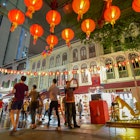
Apr 6, 2024 • 6 min read

Mar 8, 2024 • 5 min read

Mar 8, 2024 • 6 min read

Feb 9, 2024 • 12 min read
- CNA Explains
- Sustainability
- Latest News
- News Reports
- Documentaries & Shows
- TV Schedule
- CNA938 Live
- Radio Schedule
- Singapore Parliament
- Mental Health
- Interactives
- Entertainment
- Style & Beauty
- Experiences
- Remarkable Living
- Send us a news tip
- Events & Partnerships
- Business Blueprint
- Health Matters
- The Asian Traveller
Trending Topics
Follow our news, recent searches, planning a trip what you need to know about singapore's latest border measures and new vtls, advertisement.
A check-in counter at Changi Airport Terminal 1. (File photo: CNA/Vanessa Lim)

Kurt Ganapathy

Lakeisha Leo
SINGAPORE: Border measures in Singapore will be simplified to facilitate the arrival of travellers who are less likely to become severely ill with COVID-19 and burden the country's healthcare system while they are here.
"As Singapore’s incidence rate is now comparable with most overseas destinations, imported cases are unlikely to affect the trajectory of local cases," said the Ministry of Health (MOH) on Wednesday (Feb 16).
Singapore also announced the launch of new vaccinated travel lanes (VTLs) with Hong Kong and other regions on Wednesday. VTL quotas are also set to be restored and progressively increased.
Here's what you need to know:
HONG KONG VTL
As a Category I region, travellers from Hong Kong, including those who are unvaccinated, have been able to enter Singapore under a unilateral opening arrangement.
This arrangement will cease at 11.59pm on Feb 24 following MOH's review of the COVID-19 situation there.
A new one-way VTL will replace it, meaning travellers from Hong Kong will now have to be fully vaccinated to be able to enter Singapore quarantine-free.
Air travel pass (ATP) applications for travel from Hong Kong will close at 11.59pm on Feb 17.
Travellers with travel history to Hong Kong and who have valid ATPs can enter Singapore until 11.59pm on Feb 24. All ATPs for entry into Singapore from Hong Kong after this time will be rescinded.
Travellers with travel history to Hong Kong will be able to apply for a vaccinated travel pass (VTP) to enter Singapore from 10am on Feb 22 for entry on or after Feb 25.
FIVE MORE VTL COUNTRIES, MORE LINKS TO THAILAND
Previously announced VTLs with Qatar, Saudi Arabia and the United Arab Emirates, which were deferred amid the emergence of the Omicron variant , will be opened from Feb 25.
Travellers from these countries can apply for VTPs from 10am on Feb 22.
New VTLs with Israel and the Philippines were also announced on Wednesday, with two-way quarantine-free travel between Singapore and these countries to be established on Mar 4.
VTP applications for Israel and the Philippines open at 10am on Mar 1.
The VTL for Thailand will also be extended beyond Bangkok to include flights from all cities in Thailand, said the Civil Aviation Authority of Singapore (CAAS).
"Airlines that plan to operate from more cities from Thailand under the VTL may submit their plans for designated flights to CAAS for approval," the authority said.

Singapore announces new VTLs with Hong Kong and others, streamlines border measures

Singapore to simplify COVID-19 rules; safe distancing no longer required when wearing masks

Safe distancing, visitors at home: 5 things to know about Singapore's updated COVID-19 measures
Malaysia land vtl quotas to be reinstated.
In an effort to slow the spread of the Omicron variant, Singapore cut the quota for its land VTL with Malaysia by 50 per cent in December.
This quota will be fully reinstated from Feb 22, the Ministry for Trade and Industry (MTI) said. Sales for additional bus tickets from Feb 22 have commenced.
"As the imported cases are now unlikely to affect the trajectory of local cases, the Ministry of Trade and Industry will be restoring the VTL (Land) quota and streamlining the border measures for VTL (Land)," MTI said.
The streamlined measures are the same as those that apply to air VTLs.
SEA VTL WITH BATAM, BINTAN
Two-way quarantine-free travel between Singapore and the islands of Batam and Bintan will be possible from Feb 25 when Singapore launches sea VTLs .
Indonesia currently allows travellers from Singapore to travel under its travel bubble to Nongsapura International Ferry Terminal in Batam and Bandar Bintan Telani Ferry Terminal in Bintan, without the need for quarantine.
Under the sea VTL, the usual rules apply - travellers to Singapore must be fully vaccinated and they must have a physical or digital proof of vaccination recognised by Singapore authorities.
Two COVID-19 tests will be required. The first, before departing Batam or Bintan, and the second, upon arrival in Singapore.
FEWER CATEGORIES
Existing Categories II, III and IV will be combined into a single General Travel category. Fully vaccinated travellers arriving via VTL arrangements can continue to enjoy quarantine-free border measures.
Travellers from Category I countries or regions, such as Macau, Taiwan and China, can continue to enter Singapore without going through quarantine. Hong Kong, which is currently a Category I, will be reclassified to the General Travel category from Feb 25.
There will also be a new Restricted category for countries or regions with developing COVID-19 situations that may call for stricter border measures to be imposed on arrivals. There are no countries or regions in this category now, said MOH.
In view of the shorter incubation period of the Omicron variant, the duration for stay-home notices will also be standardised to seven days across all country or region categories.
This will take effect for travellers arriving in Singapore from 11.59pm on Feb 21.

SIMPLER REQUIREMENTS FOR VTL TRAVELLERS
From 11.59pm on Feb 21, the enhanced seven-day testing regime for VTL travellers arriving in Singapore will be discontinued.
In addition, Category I and VTL travellers will no longer need to perform on-arrival polymerase chain reaction (PCR) tests at Changi Airport.
Instead, they will have up to 24 hours from their entry to take a supervised self-swab antigen rapid test (ART) at one of the testing centres located across Singapore.
Except for going for the swab test, travellers are required to isolate at their place of accommodation until they have tested negative. They should also take private transport when travelling to and from the test centres.
The travel history requirement will be reduced from 14 days to seven days for VTL travellers.
They must have remained only in one or more of the VTL countries or regions, or a Category I country or region, in the last seven consecutive days prior to their departure to Singapore.
Vaccinated long-term pass holders will also no longer have to obtain a VTP or an entry approval to enter Singapore.
From 11.59pm on Feb 21, only short-term visitors and work permit holders eligible to travel via VTLs will have to apply for a VTP to travel to Singapore on a VTL flight.
BOOKMARK THIS: Our comprehensive coverage of the COVID-19 pandemic and its developments
Download our app or subscribe to our Telegram channel for the latest updates on the coronavirus pandemic: https://cna.asia/telegram
Sign up for our newsletters
Get our pick of top stories and thought-provoking articles in your inbox
Get the CNA app
Stay updated with notifications for breaking news and our best stories
Get WhatsApp alerts
Join our channel for the top reads for the day on your preferred chat app
Related Topics
Also worth reading, this browser is no longer supported.
We know it's a hassle to switch browsers but we want your experience with CNA to be fast, secure and the best it can possibly be.
To continue, upgrade to a supported browser or, for the finest experience, download the mobile app.
Upgraded but still having issues? Contact us
Cookies on GOV.UK
We use some essential cookies to make this website work.
We’d like to set additional cookies to understand how you use GOV.UK, remember your settings and improve government services.
We also use cookies set by other sites to help us deliver content from their services.
You have accepted additional cookies. You can change your cookie settings at any time.
You have rejected additional cookies. You can change your cookie settings at any time.
- Passports, travel and living abroad
- Travel abroad
- Foreign travel advice

Warnings and insurance
Before you travel.
No travel can be guaranteed safe. Read all the advice in this guide. You may also find it helpful to:
- see general advice for women travellers
- read our guide on disability and travel abroad
- see general advice for LGBT+ travellers
- read about safety for solo and independent travel
- see advice on volunteering and adventure travel abroad
Travel insurance
If you choose to travel, research your destinations and get appropriate travel insurance . Insurance should cover your itinerary, planned activities and expenses in an emergency.
About FCDO travel advice
The Foreign, Commonwealth & Development Office ( FCDO ) provides advice about risks of travel to help you make informed decisions. Find out more about FCDO travel advice .
Follow and contact FCDO travel on Twitter , Facebook and Instagram . You can also sign up to get email notifications when this advice is updated.
Related content
Is this page useful.
- Yes this page is useful
- No this page is not useful
Help us improve GOV.UK
Don’t include personal or financial information like your National Insurance number or credit card details.
To help us improve GOV.UK, we’d like to know more about your visit today. Please fill in this survey (opens in a new tab) .

Singapore Announces New Rules, Salary Requirements For Employment Pass
- Visas & Passports
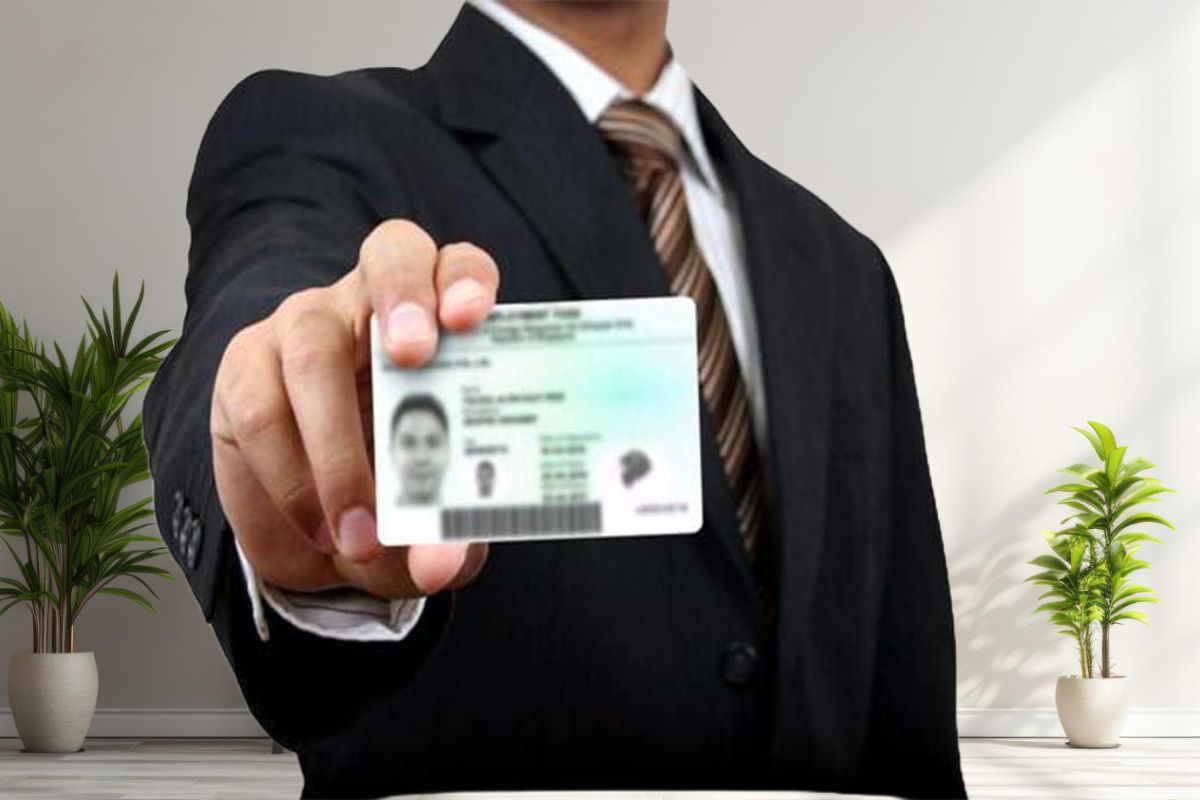
Singapore’s Ministry of Manpower (MOM) has announced significant changes to the Employment Pass (EP) application process. The updates, aimed at attracting high-quality talent while ensuring fair competition with local professionals, will come into effect in phases starting from September 2024.
What is an Employment Pass?
Before diving into the recent changes, let’s quickly understand what an Employment Pass (EP) is. An EP is a work permit issued by the Singaporean government to foreign professionals who wish to work there. One typically needs to meet specific salary thresholds and possess relevant qualifications to qualify.
Key Changes in the Salary Benchmarking Table
- New EP Applications : The revised salary benchmarks will apply to all initial EP applications starting January 1, 2025.
- EP Renewals : The new benchmarks will also apply to renewals of EPs that expire on or after July 1, 2025.
The previous salary benchmark table, released in May 2023, will remain applicable to initial Employment Pass applications filed through December 31, 2024. For EP renewal applications, the current table will apply to passes expiring between September 1, 2024, and June 30, 2025.
Must Read: Singapore Eases Path to Permanent Residency for Student Pass Holders
The COMPASS Framework
COMPASS is a transparent, points-based system that simplifies hiring foreign professionals while promoting workforce diversity and supporting the local labour market. To secure an Employment Pass (EP), employers must accumulate at least 40 points under COMPASS.
Professionals earning a fixed monthly salary of at least SGD 22,500 are exempt from COMPASS, similar to the Fair Consideration Framework (FCF) job advertising exemption.
C1 Salary Criteria Explained
Under the C1 salary criteria, candidates must earn a fixed monthly salary that meets or exceeds the 65th percentile of local Professionals, Managers, Executives, and Technicians (PMET) salaries in their sector.
This salary benchmark is distinct from the EP qualifying salary, which serves as the minimum requirement for obtaining an EP. Candidates who fail to meet the EP qualifying salary are ineligible for an EP, regardless of how many points they earn under the C1 salary criteria.
EP Qualifying Salary Requirements
For both new applications and renewals, candidates must meet the following qualifying salary thresholds:
- General Sectors : At least SGD 5,000 per month (progressively increasing with age, up to SGD 10,500 for candidates aged 45 and above).
- Financial Services : At least SGD 5,500 per month (increasing with age, up to SGD 11,500 for candidates aged 45 and above).
From January 1, 2025, the EP qualifying salary for new applications will be revised to SGD 5,600 for general sectors and SGD 6,200 for financial services. These revised salaries will apply to EP renewals starting January 1, 2026.
What Does This Mean for Expats?
These changes signal a more competitive job market for foreign professionals in Singapore . To secure an EP, individuals must demonstrate higher qualifications, experience, and salary. Employers will also need to adjust their hiring strategies to meet the new requirements.
Final Thoughts
The revised salary benchmarks and qualifying criteria for the Employment Pass reflect Singapore’s ongoing efforts to balance the needs of businesses with the development of a strong local workforce. Employers should stay updated on the COMPASS framework and salary requirements to ensure successful EP applications moving forward.
Follow and connect with us on Facebook , Twitter , LinkedIn , Instagram and Google News for the latest travel news and updates!
Manish Khandelwal
Manish Khandelwal, a travel-tech enthusiast with over a decade of experience in the travel industry. Founder and Editor-in-Chief of Travelobiz.com, he's passionate about writing.
Trending now
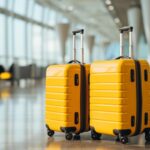

10 Must-Know Etiquette Rules in Singapore

Planning a trip to Singapore? Get ready for a cultural adventure!
This vibrant city-state blends traditions from across Asia, and knowing the local etiquette can make your visit smoother and more enjoyable.
From dining customs to public behavior, I’ve got you covered with 10 essential rules.
Follow these, and you’ll navigate Singapore like a pro, earning smiles and respect from locals along the way. 😊
1. Don’t Stand Chopsticks Upright

You might not think twice about it, but standing your chopsticks upright in a bowl of rice is a big no-no in Singapore.
This action resembles incense sticks at funerals and is considered deeply disrespectful.
Instead, place your chopsticks across your plate or bowl when not in use. This simple gesture shows respect for local customs and avoids unintentionally offending others.
Remember, in Singapore’s diverse culture, small actions can carry big meanings, so it’s always better to err on the side of caution.
Read More: 11 Things You Should Never Do In Singapore
2. Show Respect for Multiculturalism

Singapore is a melting pot of cultures, where people of various ethnicities and religions coexist harmoniously.
It’s essential to show respect for this diversity by being sensitive to different customs, languages, and beliefs.
Avoid making insensitive remarks or assumptions about others’ backgrounds. Participate in cultural festivals and try different cuisines with an open mind.
By embracing the city’s multicultural spirit, you’ll not only enrich your own experience but also contribute to the social harmony that Singapore prides itself on.
Read More: 10 Pitfalls to Avoid in Your Singapore Trip
3. Respect Queueing

Singaporeans take queuing seriously, and you should too. Whether you’re waiting for a bus, buying food at a hawker center, or entering an attraction, always join the back of the line.
Cutting in line is considered extremely rude and can lead to confrontations. If you’re unsure where the queue starts, just ask politely.
This orderly approach to waiting reflects Singapore’s emphasis on fairness and social harmony.
By respecting the queue, you’re not just following a rule – you’re participating in a valued social practice.
Read More: 10 Places I Regret Not Visiting in Singapore
4. Mind Your Manners When Dining

Table manners are important in Singapore, especially when dining with locals.
Chewing with your mouth open or talking while eating is frowned upon. If you’re sharing a meal, wait for everyone to be served before starting.
When eating at hawker centers, it’s customary to share tables with strangers during busy times. A polite nod is sufficient acknowledgment.
In hawker centers, always return your tray to designated areas and dispose of your trash properly.
This isn’t just good manners – it’s expected behavior in Singapore’s clean and orderly society.
Read More: 10 Foods I Regret Not Eating in Singapore
5. Use Both Hands

In Singapore, when giving or receiving something, it’s polite to use both hands.
This gesture shows respect and sincerity, especially when interacting with elders or in formal situations.
Whether you’re handing over a business card, money, or a gift, using both hands demonstrates that you’re aware of and appreciate local customs.
This small but meaningful act goes a long way in building rapport with locals and shows that you value the cultural nuances of Singapore.
Read More: 3 Days in Singapore Itinerary: How to Do It Under S$ 370!
6. Speak Softly in Public

Singaporeans appreciate a quiet and peaceful environment, especially in public places like trains, buses, and restaurants.
Speaking loudly or causing a disturbance is considered impolite and can draw unwanted attention.
When in public, keep your voice low and avoid loud conversations.
This respect for public space contributes to the city’s orderly atmosphere and ensures that everyone can enjoy their surroundings without disruption.
By speaking softly, you show that you’re considerate of others and understand local etiquette.
Read More: 10 Crucial Rules Every Traveler Must Know in Singapore
7. Shoes Off Indoors

When visiting someone’s home or certain religious sites in Singapore, it’s customary to remove your shoes before entering.
This practice keeps homes clean and is a sign of respect. Look for shoes at the entrance – if you see them, it’s a clear signal to remove yours.
Some places might provide slippers for guests. If you’re unsure, it’s always okay to ask.
This custom reflects the importance Singaporeans place on cleanliness and respect for personal spaces.
Embracing this practice shows your willingness to adapt to local customs.
Read More: 11 Beautiful Hidden Spots Tourists Don’t Know in Singapore
8. Respect for Elders

In Singapore, elders are highly respected, and showing them courtesy is deeply ingrained in the culture.
When greeting an elder, a slight bow or nod is appropriate, and using titles like “Uncle” or “Auntie” is common.
Offer your seat to older people in public transport, and always allow them to go first in queues.
This respect for elders is a fundamental part of Singaporean society, and by observing it, you’ll gain the appreciation of locals and demonstrate your cultural awareness.
Read More: Top 17 Free Things to Do in Singapore Without Spending a Dollar!
9. Don’t Touch People’s Heads

In Singapore, as in many Asian cultures, the head is considered the most sacred part of the body.
Touching someone’s head, especially without permission, is seen as highly disrespectful.
Even playful gestures like ruffling a child’s hair should be avoided unless you know the person well.
Understanding and respecting this cultural belief shows your sensitivity to local customs and helps you avoid unintentional offense.
It’s a small but significant way to ensure positive interactions with Singaporeans.
Read More: 10 Biggest Mistakes Travelers Make When Visiting Singapore
10. Avoid Pointing with Your Finger

In Singapore, pointing directly at someone or something with your index finger is considered rude.
Instead, use your whole hand to gesture or indicate direction. If you need to point at a person, use your thumb while keeping your fingers curled.
For objects, an open palm is preferable. This custom stems from the belief that pointing can be confrontational or accusatory.
By adopting this local gesture, you’re showing cultural sensitivity and avoiding potential misunderstandings.
It’s a small adjustment that goes a long way in fostering positive interactions.
Read More: Singapore Itinerary: The Best 5 Day Trip for You to Copy It
Related Posts

10 Places I Regret Not Visiting in Singapore

Singapore Itinerary: The Best 5 Day Trip for You to Copy It

11 Things You Should Never Do In Singapore
Leave a comment cancel reply.
Send me an email when the author replied my comment. (Please take note your comment only will show on this blog post after approved by me to prevent spam comments.)
The Straits Times
- International
- Print Edition
- news with benefits
- SPH Rewards
- STClassifieds
- Berita Harian
- Hardwarezone
- Shin Min Daily News
- Tamil Murasu
- The Business Times
- The New Paper
- Lianhe Zaobao
- Advertise with us
Singapore to lift all Covid-19 border measures from Feb 13; pre-departure test no longer needed
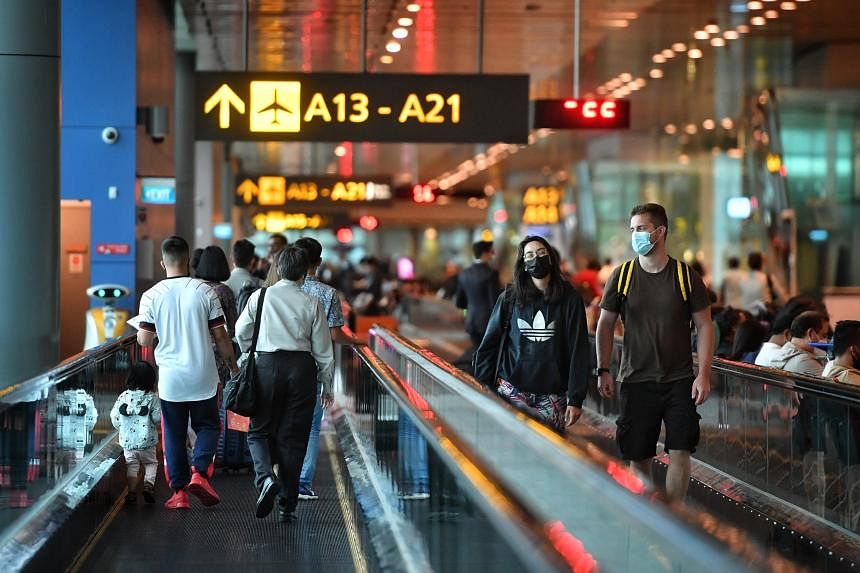
SINGAPORE – From next Monday, travellers who are not fully vaccinated against Covid-19 will no longer need to show proof of a negative pre-departure test before entering Singapore.
There will also be no need to show proof of vaccination on arrival here.
This comes as the Republic prepares to lift all remaining border restrictions that were put in place during the pandemic.
Short-term visitors to Singapore who are not fully vaccinated will also not be required to buy travel insurance that covers Covid-19 medical treatment here, the Ministry of Health (MOH) said in a statement on Thursday.
However, these restrictions under the Vaccinated Travel Framework – which was implemented in April 2022 – may be reactivated if there are international developments of concern, such as new severe variants or signs that the healthcare capacity here is strained, said MOH.
“This will allow us to quickly adjust the risk classification of countries, as well as our border measures based on the travellers’ vaccination status, should the need arise,” Minister for Trade and Industry Gan Kim Yong said during a media conference held by the multi-ministry task force tackling Covid-19.
Currently, travellers may enter Singapore without testing or quarantine. But those aged 13 and above must show proof that at least two weeks before arrival here, they had received the minimum dosage of Covid-19 vaccines under the World Health Organisation’s (WHO) emergency use list.
The minimum dosage would include at least two doses of the AstraZeneca, Moderna, Pfizer-BioNTech, Sinovac or Sinopharm vaccines, or a mixture of these jabs.
Under current rules, those who do not meet these requirements are not considered to be fully vaccinated and must meet additional requirements, such as pre-departure testing, before they can enter Singapore.
This changes from next Monday, with MOH saying it will lift the border measures in view of the stable and improving global Covid-19 situation, and the low impact of imported cases on Singapore’s healthcare capacity.
The ministry said the coronavirus situation here has remained stable in recent months despite increased travel over the year-end holiday period, the Northern Hemisphere winter season and China’s shift away from its zero-Covid-19 policy.
MOH added that the number of new Covid-19 cases has been declining since late December 2022, and viral variants of higher severity have not emerged.
Infection waves in the Northern Hemisphere and in China are rapidly subsiding, and there has been no significant rise in the number of imported cases locally, it said.
MOH also noted that the WHO recently acknowledged that the pandemic is nearing a turning point, signalling that the global Covid-19 emergency may be ending soon.
“The careful calibrated opening of our borders is not a public health threat to us,” said Professor Kenneth Mak, Singapore’s director of medical services.
At Thursday’s media conference, Mr Gan was asked about the recent reimposition of testing requirements for some inbound travellers by countries such as India.
In response, he said every country’s situation is different.
“For Singapore... our healthcare system is very strong. At the same time, our local vaccination rate is very high, our immunity levels are very high. And that gives us the confidence to open up our borders,” the minister added.
He urged Singaporeans travelling overseas to check prevailing travel advisories for their respective destinations before flying.
Prof Mak said there has been a steady decrease in inbound infections among travellers entering Singapore from China, even as the number of flights between the two countries has increased since China reopened its borders in January.
He noted that in the past seven days, there were no reports of new cases here for travellers from China.
“We continue to look at where imported cases come (from). They come from all countries and all regions... At this time, because they (the cases) are not severe, they don’t pose any burden on our healthcare system,” Prof Mak added.
Mr Shukor Yusof, founder of aviation consultancy Endau Analytics, said Singapore has been moving towards normalising the aviation and hospitality sectors here since May 2022, and Thursday’s announcement is an extension of this.
“Clearly, Changi Airport stands to benefit most with China’s reopening, and generally with the dismantling of these health protocols,” he said.
He added that the lifting of border controls will help reinstate and restore Singapore’s position as a top tourist and business destination.
Singapore began imposing border restrictions on Jan 29, 2020, starting with a travel ban on those with passports issued in China’s Hubei province or those who had travelled there recently.
This came after the coronavirus outbreak in the city of Wuhan began to escalate, and Singapore recorded several imported cases.
On March 23, 2020, all short-term visitors were barred from entering or transiting in Singapore.
Border restrictions started to ease later that year, with Singapore unilaterally reopening its borders to general travel from Brunei and New Zealand in September 2020.
Reciprocal green lanes were also set up with several countries, including Malaysia, Germany and South Korea, which allowed for essential business and official travel.
But these were later suspended as the global Covid-19 situation worsened in 2021.

It was in September 2021 that the first vaccinated travel lanes were launched, allowing fully vaccinated travellers from lower-risk countries to enter Singapore on designated flights without the need for quarantine.
These travel lanes later made way in April 2022 for the current Vaccinated Travel Framework, which removed quotas on the number of daily arrivals to Singapore and abolished entry approvals needed for all vaccinated travellers.
On Thursday, MOH said the authorities will continue to screen travellers for other infectious diseases of concern, such as yellow fever, Middle East respiratory syndrome and Ebola.
All travellers entering Singapore via air or sea, and short-term visitors entering via land checkpoints, will still need to submit a health declaration using the SG Arrival Card platform.
Health Minister Ong Ye Kung had said in Parliament on Monday that the SG Arrival Card will be a permanent feature.
READ NEXT: No masks on public transport: 6 things you need to know as S’pore lifts Covid-19 rules
Join ST's WhatsApp Channel and get the latest news and must-reads.
- Ministry of Health
- Travel advisories
Read 3 articles and stand to win rewards
Spin the wheel now
Tour bus driver allegedly ditches 20 passengers after souvenir snub

- Share on Twitter
- Share on WhatsApp
- E-mail this article
- 0 Engagements
A group of Chinese tourists got more than they bargained for during their vacation to Singapore after a heated argument with the tour bus driver.
The incident on Aug 16 saw 20 tourists abandoned on Race Course Road following a dispute over the purchase of souvenirs.
Video footage of the incident shows a group of unhappy tourists arguing with a bus driver.
One woman can be heard accusing the driver of kicking them off the bus for not spending enough money.
“The driver left us stranded in a foreign country for four hours, in nearly 40-degree heat,” one of the tourists wrote in a now-deleted social media post.
“We wanted to call the police, but our tour leader threatened us.”
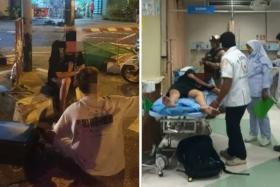
S'porean tourists in brawl with security guard at Phuket hotel
Related stories, 25 buses fined in crackdown on illegal parking in tuas, tourist drop-off turns industrial road in tuas into chaos, rat-infested geylang hotel gives tourists rodent trap.
@garygaryocp Hmmm... tour price so cheap... if tourists don't buy from driver and "allocated" shopping destinations... then... (Location, 357 Race Course Road, the coconut trees and temple can be seen clearly) ♬ original sound - Gary
The tourist, who identified herself online as Wei Da Piaoliang, alleged that the bus driver had tried to sell them souvenirs earlier in the day, but their purchases failed to meet his expectations.
She claims the situation escalated after lunch when a female tourist, suffering from high blood pressure, attempted to retrieve medication from the bus but was denied access.
Adding fuel to the fire, the driver allegedly hit another tourist with the bus door while departing.
When contacted by Shin Min Daily News, an eyewitness who works at a nearby restaurant confirmed seeing a group of agitated tourists arguing loudly with a bus driver.
“My worker and I heard shouting from outside and rushed out to see what was going on,” said the 37-year-old restaurant owner, who declined to be named.
“We didn’t know what the fight was about, but it seemed like things were getting out of hand.”
The restaurant owner, whose establishment regularly serves tour groups, said that his workers offered drinks and ice cream to the stranded tourists while they waited for alternative transport.
Another tour bus driver, who recognised his colleague in the video, claimed that it was common practice for drivers to sell souvenirs to tourists for extra cash.
“We’ve been doing this for years. It's not a secret, the companies know,” said the 70-year-old driver, who asked not to be named.
“We usually sell small things like keychains and perfume. Nothing expensive.”
He added that drivers were not obliged to carry luggage for their passengers and sometimes resorted to selling souvenirs to supplement their income.
"We do a lot of heavy lifting. Some of those bags can weigh up to 40-50 kg,” he said.
“It would be nice if customers were a bit more understanding."
The affected tourists have since filed a formal complaint with the Chinese Embassy in Singapore.
Get The New Paper on your phone with the free TNP app. Download from the Apple App Store or Google Play Store now
Nathaniel Fetalvero
- Share on Facebook

- Financial Analysis
- Corporate Stories
- Investigations
- Commodities
- Company Results
- Stock Market
- Fixed Income
- Market Views
- Company News
- Consumer Goods
- Corporate Updates
- Corporate deals
- Corporate Press Releases
- Entertainment
- Financial Services
- Hospitality & Travel
- Manufacturing
- Real Estate and Construction
- Nairalytics
- Research Analysis
- Public Debt
- Business News
- Career tips
- Personal Finance
- Billionaire Watch
Singapore to increase salary for Employment Pass to $4,729 by 2025

Singapore is set to raise its salary benchmarks for the Employment Pass (EP) under the COMPASS framework, effective January 2025.
This move is aimed at attracting high-quality foreign talent while supporting the local workforce.
The Ministry of Manpower (MOM) announced these updates, which will impact both new EP applications and renewals.
Related Stories

Singapore introduces occupational codes to aid application for new job roles in tech, sustainability

Japa: Switzerland, Singapore, US rank as best countries to become wealthy
The changes are part of a broader strategy to ensure businesses hire top-tier foreign professionals while maintaining fair competition with local talent.
The implementation will be phased, with the first changes taking effect in September 2024.
An Employment Pass (EP) is a work permit issued by the Singaporean government to foreign professionals who meet specific salary thresholds and possess relevant qualifications.
This pass is crucial for foreign workers seeking employment in Singapore, particularly in roles requiring specialized skills or expertise.
The revised salary benchmarks for EPs will apply to all new applications from January 1, 2025, and to renewals for EPs expiring on or after July 1, 2025.
The current salary table, released in May 2023, will remain applicable for initial EP applications through December 31, 2024, and for renewals for passes expiring between September 1, 2024, and June 30, 2025.
What is the COMPASS framework?
The COMPASS framework is a transparent, points-based system designed to simplify the hiring process for foreign professionals while promoting diversity in the workforce and supporting the local labour market.
Employers must accumulate at least 40 points under COMPASS to secure an EP for their candidates.
Professionals earning a fixed monthly salary of SGD 22,500($17,168) or more are exempt from COMPASS, similar to the exemption under the Fair Consideration Framework (FCF) for job advertising.
What we know
Under the C1 salary criteria, EP candidates must earn a fixed monthly salary that meets or exceeds the 65th percentile of local Professionals, Managers, Executives, and Technicians (PMET) salaries within their sector.
This benchmark is distinct from the EP qualifying salary, which sets the minimum requirement for obtaining an EP. Candidates who do not meet the EP qualifying salary are ineligible for an EP, regardless of the points they may accumulate under the C1 salary criteria.
For both new applications and renewals, candidates must meet the following qualifying salary thresholds: For General Sectors a minimum of SGD 5,000($3,815)per month, which progressively increases with age, up to SGD 10,500($8,011) for candidates aged 45 and above.
Also for Financial Services a minimum of SGD 5,500 per month, with increases up to SGD 11,500($8.775) for candidates aged 45 and above.
From January 1, 2025, the EP qualifying salary for new applications will be revised to SGD 5,600($4,273) for general sectors and SGD 6,200($4,729) for financial services. These revised salaries will apply to EP renewals starting January 1, 2026.
What this means for Foreign Professionals
- These revised benchmarks suggest a more competitive landscape for foreign professionals seeking employment in Singapore.
- The changes mean that candidates will need to meet higher qualifications, experience, and salary levels to secure an EP. Employers will also need to adjust their hiring strategies to meet the new requirements.
- Employers must stay informed about these changes to the EP application process and the COMPASS framework. They will need to ensure that they meet the new criteria when hiring foreign professionals, particularly regarding salary thresholds and points accumulation under the COMPASS system.
- The updates reflect Singapore’s ongoing efforts to balance the needs of businesses with the development of a strong local workforce.

Deborah Dan-Awoh
Deborah Dan-Awoh is a seasoned lifestyle analyst with a knack for storytelling. The focus of her work covers people, money and culture as it relates with business and economy. When she's not keeping tabs on the latest trends in lifestyle and finance- Deborah enjoys networking with industry experts to gain insight into major markets as it affects the populace
Related Posts
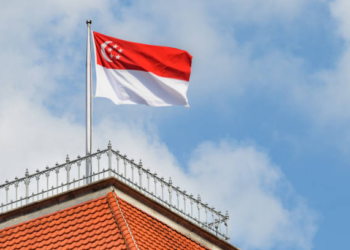
Singapore needs 260,000 foreign Talent, create more visa categories

UK, US, 3 others contribute 79% of Nigeria capital importation by country of origin

Singapore’s Work Pass enables foreigners to work in the country

Binance announces new restrictions for Singapore users

NNPC contributes the most monthly tax revenue to Federation Account — Spokesperson
Leave a reply cancel reply.
Your email address will not be published. Required fields are marked *
Save my name, email, and website in this browser for the next time I comment.

Business News | Stock Market | Money Market | Cryptos | Financial Literacy | SME |

Recent News
No room for non-computer literate in civil service – walson-jack , federal government raises n374.751 billion from august bond auction on renewed investors’ demand .
- BVN, NIN required for subscription to Nigeria’s $500 million domestic dollar bond
Follow us on social media:

- Android App
- Financial Literacy
- Ads Disclaimer
- Copyright Infringement
© 2024 Nairametrics
Welcome Back!
Login to your account below
Remember Me
Create New Account!
Fill the forms below to register
Retrieve your password
Please enter your username or email address to reset your password.
- Destinations
New ETIAS rules for Aussie travellers set to land in 2025
Going on a trip to Europe? It’s not so easy anymore, with new travel rules coming in for all Aussies. Here’s what you need to know.

One word gets Aussies attention in Europe

‘Don’t come’: Tourists told to stay away

Aussie Stonehenge find changes everything
Fancy a trip to Europe in 2025?
Australians used to be able to travel visa-free to the tourism-rich continent, but that’s not the case anymore.
The European Union has introduced new rules for Aussie travellers, including a new $11.50 application fee.
It’s all part of the new ETIAS program, which is a new entry requirement for visa-exempt nationals from 60 nations, including Australians.
ETIAS stands for European Travel Information and Authorisation System.
The program starts in the first half of 2025.
Here’s what you need to know.

What is ETIAS?
It is a new travel authorisation requirement for all Australians travelling to 30 countries within Europe.
The participating countries are: Austria, Belgium, Bulgaria, Croatia, Cyprus, Czech Republic, Denmark, Estonia, Finland, France, Germany, Greece, Hungary, Iceland, Italy, Latvia, Liechtenstein, Lithuania, Luxembourg, Malta, Netherlands, Norway, Poland, Portugal, Romania, Slovakia, Slovenia, Spain, Sweden and Switzerland.
What does it give you?
With a valid ETIAS travel authorisation, you can enter the territory of these European countries as often as you want for short-term stays – normally for up to 90 days in any 180-day period, the EU states on its website.
“However, it does not guarantee entry. When you arrive, a border guard will ask to see your passport and other documents and verify that you meet the entry conditions.”
How does it work
The ETIAS is linked to your passport.
It is valid for up to three years or until the passport expires, whichever comes first.
If you get a new passport, you need to get a new ETIAS travel authorisation.
How do I apply?
Go to the ETIAS website and fill out the application form online, or apply through the ETIAS mobile app.
The cost is seven Euros, which works out to about $11.50.

Processing times
Most applications are processed within minutes, the EU states.
“It is possible however that your application may take longer to process.
“If so, you will receive a decision within four days.
“Please note that this period could be extended by up to 14 days if you are requested to provide additional information or documentation, or up to 30 days if you are invited to an interview.”
After the application
“You will receive an email confirming the submission of your application which will include your unique ETIAS application number: make sure you keep this number for future reference,” the EU says.
“Once your application has been processed, you will receive another email informing you about its outcome.
“When you get your ETIAS travel authorisation please make sure your name, passport number and other information is correct: if there is any mistake, you will not be allowed to cross the border.”
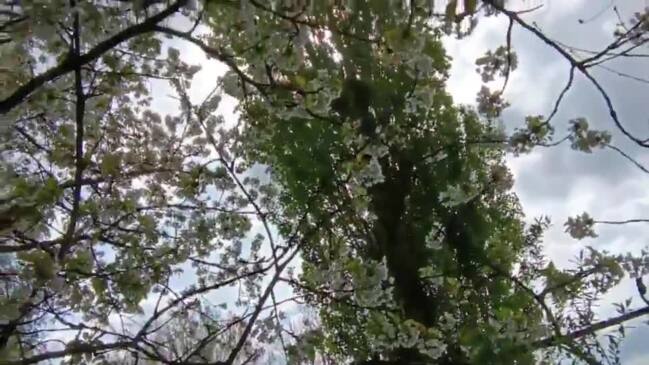
What happens at the border?
The ETIAS is linked to your travel document.
“Make sure to carry the same document which you used in your ETIAS application,” the EU states.
“Otherwise, you will not be allowed to board your flight, bus or ship, or to enter any of the European countries requiring ETIAS.”
Aussies are convinced they are treated better when locals find out an important thing about them when travelling in Europe.
It’s a location loved by A-listers including Katy Perry and Leonardo DiCaprio – but the town wants tourists to stay away if they plan on coming in summer.
Stonehenge has captured the imaginations of countless tourists for generations and now a pair of Aussies have unlocked one of its biggest secrets.

COMMENTS
CHARGING POLICIES FOR VACCINATED TRAVELLERS. With the introduction of the new vaccinated travel framework, fully vaccinated Singapore residents as well as long-term pass holders will no longer be ...
They should only resume their travel after testing negative, at least 72 hours from the time they first tested positive. 1. 1 Or on Day 7 for vaccinated persons (and children below 12 years old) if they continue to test positive. Non-fully vaccinated persons aged 12 years and above should only resume travel on Day 14 if they continue to test ...
SINGAPORE: A new simplified framework that will allow fully vaccinated travellers to enter Singapore quarantine-free will come into effect from Apr 1, replacing all existing vaccinated travel ...
SINGAPORE - Cross-border travel restrictions will be eased substantially from next week as the Covid-19 situation comes under control, said Prime Minister Lee Hsien Loong.
From 1 April 2022, entry into Singapore will be allowed for fully vaccinated travellers under the Vaccinated Travel Framework. Stay-Home Notice (SHN) and on-arrival COVID-19 tests are not required for all fully vaccinated travellers, or children aged 12 and below. There is no need to apply for entry approvals (including the Vaccinated Travel ...
SINGAPORE - Under the new Vaccinated Travel Lane (VTL) from Sept 8, fully vaccinated passengers to and from Singapore can travel without quarantine, provided they undergo several Covid-19 ...
13 February 2023. General Advisory for Travellers. 1. Singapore is open to all travellers without quarantine. This includes non-fully vaccinated travellers. Covid-19 pre-departure tests are not required. More details are available here. 2. Depending on the destination you are travelling from, mask-wearing aboard flights and ferries to Singapore ...
SINGAPORE - Group size limits and safe distancing requirements will be removed, as part of a large-scale easing of Covid-19 measures announced on Friday (April 22).
6 min read Published on 02 Oct 2021. From 7 Oct 2021, border measures for incoming travellers will be determined based on the travellers' recent travel history in the last 14 days, instead of 21 days. The Stay-Home Notice (SHN) for those who are currently serving 14 days will be reduced to 10 days, due to the shorter incubation period of the ...
To enter Singapore, travellers must meet the following immigration requirements: i) Passport Validity. Have minimum 6-month passport validity if you are not a Singapore passport holder. ii) Visa. Short term travellers holding a passport or travel document from a visa-required country/region must apply for a Visa.
09 Feb 2023 08:33PM (Updated: 10 Feb 2023 11:25AM) SINGAPORE: The Government announced on Thursday (Feb 9) that it will step down its COVID-19 measures and also its disease alert to the lowest ...
Singapore has made the biggest step to ease border restrictions since the start of the COVID-19 pandemic, with an end to its Vaccinated Travel Lane (VTL) programme on 1st April 2022, in favour of a new Vaccinated Travel Framework (VTF) scheme, under which fully vaccinated travellers arriving from any country are now eligible to enter quarantine-free.
All COVID-19 related border measures have been lifted from 13 February 2023. Please visit the Immigration & Checkpoints Authority website for current requirements for entry to and departure from Singapore. Information on the SG Arrival Card with Electronic Health Declaration can be found here . Other COVID-19 resources.
Travellers are strongly encouraged to be vaccinated with COVID-19 WHO EUL vaccines. There are currently no requirements related to COVID-19 vaccines for entry to Singapore You may refer to the Entering Singapore page for full details on entry requirements. What are the current COVID-19 border restrictions for Singapore? You can find the latest ...
COVID-19 Rules and Restrictions in Singapore. by Nicole Thong Wen Teng / October 10, 2022. COVID-19 regulations may be changing at a feverish pace, but we're here to soothe your nerves. This article will serve as a comprehensive one-stop resource for the current state of COVID-19 laws in Singapore. It is accurate as of 10 October 2022.
Travel Tips. Enjoy summer all year-round with Singapore's tropical climate (25-33ºC). Dress in light, airy clothing and bring along an umbrella in case of occasional rainfall. Singapore Standard Time is situated in GMT +8 time zone, so be sure to calibrate your watches accordingly. While the majority of visitors do not require a visa, it is ...
READ FULL STORY: Dining in allowed from June 21 but only in groups of 2, as S'pore opts for calibrated Covid-19 opening. 2. Wedding receptions remain banned, at least until mid-July. When wedding ...
The Singaporean government urged locals to get Covid booster shots. As per the new regulations, one's "fully vaccinated" status will expire 270 days after getting the second vaccine unless ...
9. Tipping is not expected. Tipping is not expected in Singapore. If you're eating out in a restaurant or cafe, there is usually a 10% service charge included in the bill. Some places may have a tip box but otherwise, additional tips are not mandatory or expected, though they are appreciated in the service line. 10.
New VTLs with Israel and the Philippines were also announced on Wednesday, with two-way quarantine-free travel between Singapore and these countries to be established on Mar 4. VTP applications ...
FCDO travel advice for Singapore. Includes safety and security, insurance, entry requirements and legal differences. ... regulations and rules. Research and statistics. ... (opens in a new tab ...
EP Qualifying Salary Requirements. For both new applications and renewals, candidates must meet the following qualifying salary thresholds: General Sectors: At least SGD 5,000 per month (progressively increasing with age, up to SGD 10,500 for candidates aged 45 and above).; Financial Services: At least SGD 5,500 per month (increasing with age, up to SGD 11,500 for candidates aged 45 and above).
Read More: 10 Crucial Rules Every Traveler Must Know in Singapore. 7. Shoes Off Indoors. ... I'm the founder of Prepare Travel Plans blog―a travel junkie who loves to explore new places and experience local cultures. On my travel site, you will gain insights from my personal trips to different destinations. Get to know more about Bangkok ...
Border restrictions started to ease later that year, with Singapore unilaterally reopening its borders to general travel from Brunei and New Zealand in September 2020.
A group of Chinese tourists got more than they bargained for during their vacation to Singapore after a heated argument with the tour bus driver. The incident on Aug 16 saw 20 tourists abandoned on Race Course Road following a dispute over the purchase of souvenirs. Video footage of the incident ...
Singapore is set to raise its salary benchmarks for the Employment Pass (EP) under the COMPASS framework, effective January 2025. This move is aimed at attracting high-quality foreign talent while supporting the local workforce. The Ministry of Manpower (MOM) announced these updates, which will impact both new EP applications and renewals.
Fodor's provides expert travel content worth exploring so you can dream up your next trip. The world is a weird and wonderful place—we want to show you around. Spain Has a New Drinking Rule ...
Australians used to be able to travel visa-free to the tourism-rich continent, but that's not the case anymore. The European Union has introduced new rules for Aussie travellers, including a new ...